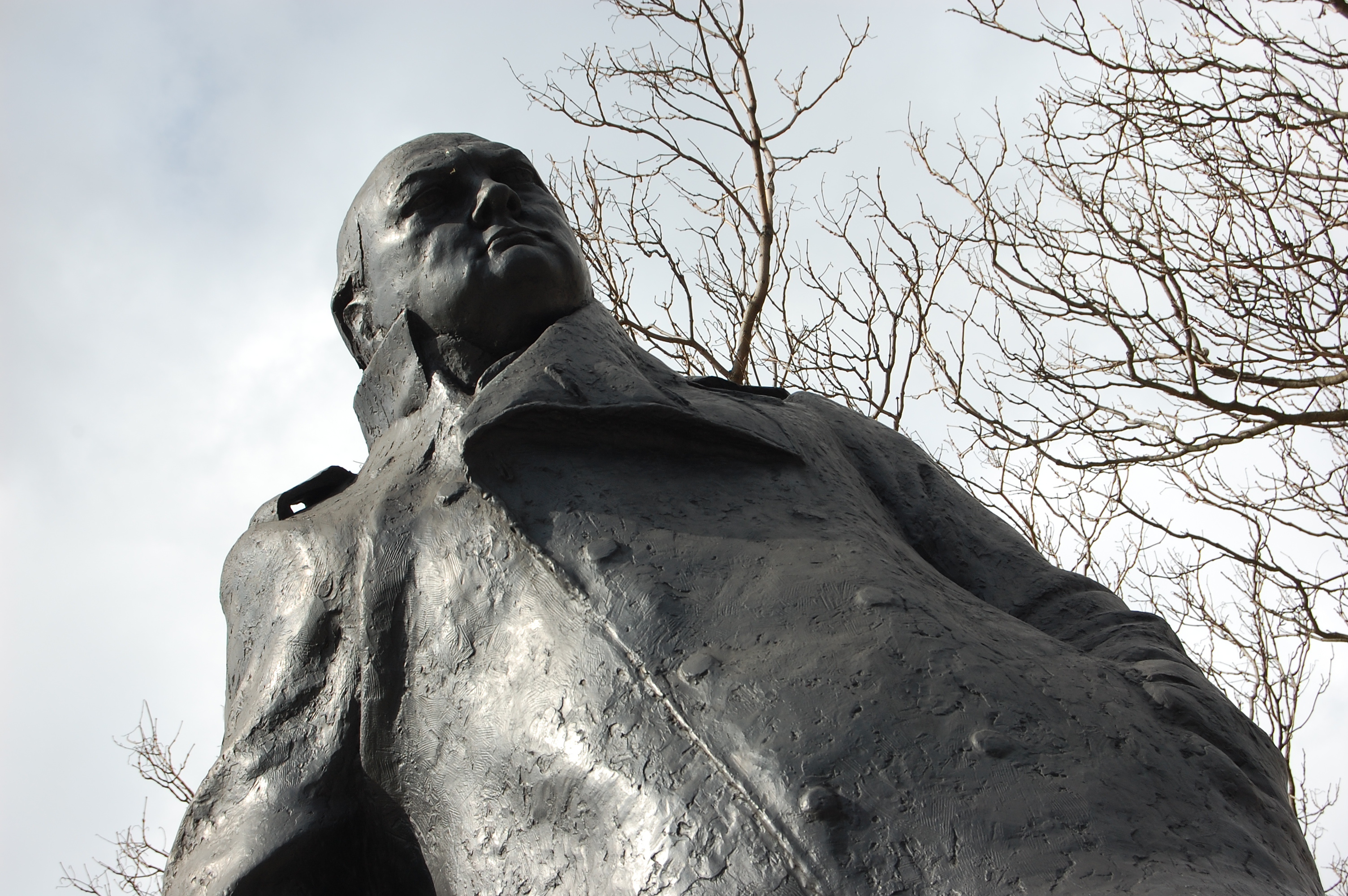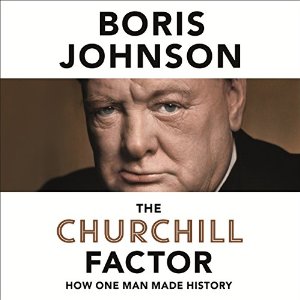“Courage is what it takes to stand up and speak; courage is also what it takes to sit down and listen.”
“We make a living by what we get, but we make a life by what we give.”
Winston Churchill is no stranger to anyone. He was a soldier in the First World War, an inspirational British leader during the Second World War. He was also a writer, historian, poet, artist and the only British Prime Minister to receive the Nobel Prize in Literature.


Here are a few of my favourite fundamentals from Churchill on how you could use them to improve your life or business.
1. Focus on what you are doing right now.
“It is a mistake to look too far ahead. Only one link in the chain of destiny can be handled at a time.”
“It is always wise to look ahead, but difficult to look further than you can see.”
When you start to look too far into the future then any task or project can seem close to impossible. You shut down because you become overwhelmed. That is one of the reasons why it is good to plan for the future but then to shift your focus back to today and the present moment. Then you just focus on taking the first step today. That is all you need to focus on, nothing else. The thing is, you can’t see the whole path anyway and it will shift and reveal itself along the way. That’s why the best of plans tend to fall apart at least a bit as you start to put it into action. You discover that your map of reality doesn’t look like reality.
2. Be concerned about action.
“I never worry about action, but only about inaction”
Yes, taking action can lead to failure, rejection or making mistakes. There is always a risk for that. But if you do nothing then you are pretty much guaranteed that nothing will change or improve.
How can you improve your action habit though? Two tips:
- Lighten up. Do not take whatever you are about to do too seriously. That makes it feel too big, too difficult and too scary. If you on the other hand relax a bit and lighten up you often realize that those problems and negative feelings are just something you are creating in your own mind. With a lighter state of mind your tasks seems lighter and becomes easier to get started with.
- Start small. To get from a state where you just feel like sitting on your chair and doing nothing much to one where you take action over and over you can do this: start small. Getting started with your biggest task or most difficult action may seem too much. So instead, start with something that doesn’t seem so hard. After that the next thing doesn’t seem so difficult to get started with since you are now in “take action” mode.
3. Be an optimist.
“The pessimist sees difficulty in every opportunity. The optimist sees the opportunity in every difficulty.”
“Attitude is a little thing that makes a big difference.”
“I am an optimist. It does not seem too much use being anything else.”
How do you make the shift to a more optimistic attitude? Well, it takes time. But gradually you can change it. Three tips are:
- Positive influences. Fill your mind and emotional system with positive input from people, music and programs/books. Other people’s thoughts have a big influence and emotions are contagious. Limit your time with negative people. Reduce TV or magazines that may make you feel worse. Limiting negative influences can make it a lot easier to keep the positive attitude up.
- Set the context for your day. What you do early in the day often sets the context for your day. We have a tendency to want to be consistent with what we have done before. You can use that your advantage in few ways. You can for example do the hardest thing on your to-do list first. When it is done you’ll feel good about yourself and it makes the day feel easier and you’ll have less inner resistance to getting the rest of the tasks of the day done.
- Act as you want to feel. Act as if you are feeling positive. After a few minutes you will actually feel it for real. So smile. Use positive language. And so on. It feels weird at first but it really works.
Just practising these three things in a consistent way can make a huge difference.
4. Be persistent. Don’t give up.
“Continuous effort – not strength or intelligence – is the key to unlocking our potential”
“If you’re going through hell, keep going.”
Modern society trains us to look for quick fixes – it’s easy to make the mistake of giving up to soon. That’s the “normal” thing to do. But what could have happened if you just kept going and for each failure learned more and more about what works?
I think people often make a mistake of giving up too early. Your mind probably has a reasonable time-frame for success. This might not correspond to a realistic time-frame though.
Learn from people who have gone where you want to go. Talk to them. Read what they have to say in books or online. This will not give complete plan but a clearer perspective of what is needed to achieve what you want.
5. Don’t lose the enthusiasm.
“Success is going from failure to failure without losing enthusiasm.”
It’s very easy to get down on yourself and your results when things don’t go as planned. What was once enthusiasm can quickly become apathy and pessimism.
But how do you do keep up the enthusiasm after things have gone wrong and you just feel like giving up? Simply ask better questions in “negative” situations.
Questions like
- What can I learn from this?
- What is the hidden opportunity in this situation?
6. Remember, most troubles never happen.
“When I look back on all these worries, I remember the story of the old man who said on his deathbed that he had had a lot of trouble in his life, most of which had never happened”
One final thought. But a very important one. Most things you fear will happen never happen. They are just monsters in your own mind. And if they happen then they will most often not be as painful or bad as you expected. Worrying is most often just a waste of time.
This is of course easy to say. But if you think back and remind yourself of how little of what you feared throughout your life that has actually happened its a lot easier to start doing more of what you really want in life and business.
£500 worth of value – FREE!
My team and I are committed to doubling the size of every business we work with and you are obviously going places…
So I would like to offer you a
FREE consultation worth £500 during which we explore where you are now, where you want to get to and how you are going to get there!
PLUS free 3-month Audible account
The Churchill Factor by Boris Johnson
Boris Johnson explores what makes up the ‘Churchill Factor’ – the singular brilliance of one of the most important leaders of the 20th century.
Taking on the myths and misconceptions along with the outsized reality, he portrays – with characteristic wit and passion – a man of multiple contradictions, contagious bravery, breath-taking eloquence, matchless strategizing, and deep humanity.
Fearless on the battlefield, Churchill had to be ordered by the King to stay out of action on D-Day; he pioneered aerial bombing, yet hated the destruction of war and scorned politicians who had not experienced its horrors.
He was a celebrated journalist, a great orator, and won the Nobel Prize for Literature. He was famous for his ability to combine wining and dining with many late nights of crucial wartime decision-making. His open-mindedness made him a pioneer in health care, education, and social welfare, though he remained incorrigibly politically incorrect. Most of all, as Boris Johnson says, ‘Churchill is the resounding human rebuttal to all who think history is the story of vast and impersonal economic forces.’
The Churchill Factor is a book to be enjoyed not only by anyone interested in history; it is essential listening for anyone who wants to know what makes a great leader.
Click HERE to get your free audiobook

